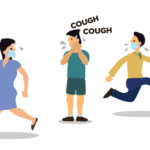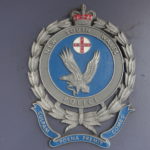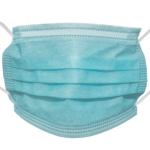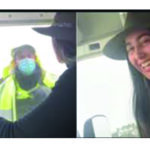Public Health Order Offences in New South Wales

According to a NSW police spokesperson, last week, Anthony Karam was “public health enemy number one”.
After having been told by state health officials that he had contracted COVID-19 on 14 August, instead of self-isolating as ordered, the 27-year-old western Sydney man allegedly went on the run.
NSW police became aware that Karam had breached a personal public health order, when they visited the address he’d provided authorities with, only to find that he wasn’t at the residence, and, in fact, it was a fake address.
A warrant for Karam’s arrest was issued on 20 August in relation to multiple breaches of the public health order. And NSW Chief Health Officer Kerry Chant issued a statement outlining that he was on the run while infected and warned the public not to approach him.
Prior to being tracked down, Karam did contact the NSW Police Force via a third party, and negotiations were made for the COVID infected man to turn himself in, however Karam went back on his promise.
Just prior to 5.30 pm on 26 August, officers attached to Bankstown Police Area Command arrested Karam at a unit on Footbridge Boulevard in Wentworth Point. And as he was led away, the fugitive said to a reporter, “I’ve been isolating the whole time, mate.”
Public health order offences
Following his arrest, Karam was taken to Bankstown Police Station, where he was placed in isolation and the warrant was executed, which involved the man being charged with thirteen offences under the Public Health Act 2010 (NSW).
Karam had been placed under an order to isolate in accordance with section 62 of the Act. This section allows an authorised medical practitioner to place a person found to have a category 4 or 5 condition under a personal health order.
COVID-19 is listed as a category 2 and 4 condition in schedule 1 of the Act.
The COVID fugitive was charged with one count of not complying with a ministerial direction – meaning a public health order – contrary to section 10 of the Act. It carries a maximum penalty of 6 months in gaol and/or an $11,000 fine.
Another count involved the crime of failure to take precautions in public to stop the spread of a category 2, 3, 4 or 5 condition, under section 52 of the Act. Maximum penalties of 6 months and/or a fine of $11,000 apply to this offence.
Karam is facing two counts of failing to comply with a self-isolation direction issued under section 62. The offence of failing to comply with a section 62 order is contained in section 70 of the Act, and it carries, again, 6 months in prison and/or an $11,000 fine.
The final nine counts relate to not wearing a fitted face covering in an indoor area of common property, which is a current legal requirement under clause 3.15 of the Public Health (COVID-19 Additional Restrictions for Delta Outbreak) Order (No 2) 2021.
Under regular circumstances if a NSW police officer finds a person not complying with mask regulations, they can be issued with an on-the-spot fine of $500. However, in Karam’s case, it may be classed as a section 10 offence.
Laws for public health crises
A 2020 NSW Health discussion paper on the Public Health Act explains that the legislation is designed to protect and promote public health, whilst controlling risks to it. This includes the provision of emergency powers in order to deal with public health crises.
With the onset of the COVID-19 pandemic in March last year, section 7 of the Act was triggered, which provides the NSW health minister with the power to issue public health orders that relate to movement, behaviour and segregation without parliamentary oversight.
The discussion paper outlines that the Ministry of Health undertook a statutory review of the Act in 2016, which found that overall the legislation continued to remain valid in terms of its objectives, but some amendments were recommended and subsequently made.
Schedule 1 of the Act was amended last year, so that the provisions of the legislation pertain to COVID-19.
This includes in relation to a section 62 order, which is what Karam was issued with. These orders can be imposed upon someone known to be infected, or who has potentially been infected.
Clause 39 of the Public Health Regulation 2012 (NSW) outlines that an authorised medical practitioner must take into consideration a number of factors before issuing such a section 62 order, which includes whether there are other options available.
Section 62 was also directly amended last year so that health authorities can order an individual to undergo a medical examination or a test. “The amendment was made in the context of the COVID-19 pandemic but was always intended to have a broader application,” the discussion paper reads.
COVID crimes
As for Karam, his matter went before Bankstown Local Court last Friday. Although he wasn’t able to appear in court, as while willing to do so via audio-video link, the custody manager had trouble with facilitating this due to the inmate’s COVID-19 status.
The western Sydney man’s lawyers didn’t enter any pleas on his behalf in relation to his numerous charges, and nor did they apply for bail. The magistrate also formally refused bail. And the case is set to proceed on 23 September at Burwood Local Court.
However, Karam wasn’t the only COVID infected citizen to fall short of the law over the last week. On 24 August, police arrested a 31-year-old man who was found to be in breach of a self-isolation order for the fourth time.
Police pulled the Bankstown man up for not wearing a mask correctly on a train from Seven Hills heading towards Parramatta. Further checks found that he was wanted for three other breaches of a public health order, and following his arrest, it was ascertained that he was COVID positive.







